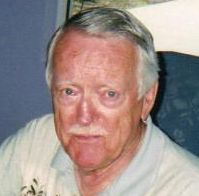The poverty of relative deprivation

thirdmonk.net
Wealth, in even the most improbable cases, manages to convey the aspect of intelligence. - J. Kenneth Galbraith
William Annett Global News Centre
(DAYTONA BEACH) Jimmy Pattison is Vancouver’s only billionaire, absent Li-Kashing and one or two other trans-Pacific practitioners, those who have proselytized Vancouver since the British Hong Kong exodus in – what was it - 1999? But Jimmy is the perfect Canadian knock-off of the Steve Forbes model, as showcased each week in Forbes Mag’s monotonous litany of “richest” (“World’s Richest Teen-ager,” “World’s Richest Plumber,” and so on. )
Many years ago, I took Jimmy Pattison for a ride (before Brian Mulroney did likewise by hiring him to chair Expo for a dollar a year). My version was more impressive, tooling Jimmy (I call him Jimmy) around Vancouver’s Inner Harbor in a hovercraft, looking for seed capital for a Vancouver- Victoria commuter service (which didn’t work out because the hovercraft rode about like a Ford 250 with duals on a construction site).
Anyway, on that occasion I asked him what it was that made one – already with 100 million or 200 million - to go for broke solely in order to double one’s stash. And his answer would have done justice to Forbes (both Steve and Mag).
“Because that’s the way they keep score.”
Which in turn reminds me of Julius Grodinsky, a prof I had at The Wharton School back in the Sixties. When the prof wasn’t advising us to buy Texas Instruments, he was wont to talk about The Poverty of Relative Deprivation, his pet thesis. It went like this:
Let’s say you have a relatively new Ford in your carport. But the guy next door has a Buick. You send your wife out to work so you can acquire a Buick. But then you notice that the guy across the street has a Cadillac. So you get a second job so you can promote a Caddy. Then your brother-in-law in Cleveland phones with the news that he just bought a new Beamer convertible. You proselytize the 401K you’ve been nurturing at your place of business and go him one better with a Mercedes Kompressor. (Superior German engineering, which you thought we’d trashed in 1945.) Meanwhile your wife takes off with a guy who drives a Rolls Roycc. Actually, it’s a Japanese imitation, but as usual, the Lolls-Loyce proves to be even better than the original.
But – and this was Grodinsky’s point - you’re still not happy.
All of which sort of sums up the Steve Forbes Syndrome, which is the pursuit of ever-increasing avoirdupois. And that appears to be the playbook for most of us, at least until we reach some sort of equilibrium or sensibility in our golden years. But there’s a contrapuntal argument or point of view, which I can illustrate by quoting another client I used to have when I was a starving stock broker in Winnipeg.
Ben was a tanned, muscular dude, usually in khakis, half-Wellington boots, a gold chain around his neck and a Rolex that must have been worth a Saudi’s ransom. (Like that liquor ad about The Most Interesting Man In The World). Ben had been a Colonel in the former Irgun Zvai Leumi, a temporary brother-in-arms and drinking buddy of Menachem Begin . I suppose Ben’s net worth was a scant three or four million, acquired God knows how or why along the way. But faced with the same question I had posed to Jimmy Pattison, he was surprisingly au contraire.
“You can only eat so much steak,” Ben pointed out. “You can only drink so much Glen Livet. You can only make out with so many – but never mind, let’s just say that I have other things to do.”
And J. Kenneth Galbraith also had something to say on the subject, both acknowledging and debunking the Forbes Syndrome.
“In an acquisitive society, consistent growth is not only normal, it’s mandatory, whether related to corporate net earnings, systemic inflation, personal income or built-in expectations.”
So the progression of personal acquisition is routine. But ironically, the one thing that the financial acquisition addiction doesn’t automatically engender – in fact isn’t consistent with - is human happiness. Perhaps your true acquisition addict doesn’t give a damn. Take Bernie Madoff, for example, the envy of Forbes Mag subscribers and the bête noire of everybody else, who (Madoff) made off with billions in clients’ money. Ever see a picture of him smiling?
(Contemporary Madoff joke: Why did Madoff go to jail? Because he robbed from the rich, but unlike Robin Hood, he neglected to pass it on to the poor.)
I tried all this out on my neighbor Warren, a retired physician, who, with a name like that, you would expect to be a Forbes addict.
“I agree with you totally,” he told me over the back fence. “I suppose during my professional career as a physician, I never made more than 250.”
“250.”
“Yeah, a quarter million, you know.”
“But in retirement?”
“My investment adviser suggested I needed two thirds of my regular income to maintain my lifestyle in retirement.”
“Sounds ,” I said, “like about 175 grand a year.”
“Something like that. But look, I have a former colleague in South Beach (he was actually a cosmetic oncologist) who has a $6 million condo and a yacht in a nearby marina. That’s not my style, although I do have a modest boat.”
“I get seasick,” I observed.
“Some men look at a mansion and say ‘why not,’” said Warren. “I look at it and say ‘why? what about the taxes, insurance and upkeep?’”
“You sound like Bobby Kennedy,” I said. “But I can see you’re a happy man.”
“I’ve simplified my life,” said Warren. “It leads to tranquility, peace and low blood pressure.”
“I’m with you,” I said. “Minus the 175.”
Professor Grodinsky would have agreed that all poverty is relative. But in Warren’s case, I could see that his schtick was the affluence of not wanting.
Priceless.
__________________________________

Bill Annett grew up a writing brat; his father, Ross Annett, at a time when Scott Fitzgerald and P.G. Wodehouse were regular contributors, wrote the longest series of short stories in the Saturday Evening Post’s history, with the sole exception of the unsinkable Tugboat Annie.
At 18, Bill’s first short story was included in the anthology “Canadian Short Stories.” Alarmed, his father enrolled Bill in law school in Manitoba to ensure his going straight. For a time, it worked, although Bill did an arabesque into an English major, followed, logically, by corporation finance, investment banking and business administration at NYU and the Wharton School. He added G.I. education in the Army’s CID at Fort Dix, New Jersey during the Korean altercation.
He also contributed to The American Banker and Venture in New York, INC. in Boston, the International Mining Journal in London, Hong Kong Business, Financial Times and Financial Post in Toronto.
Bill has written six books, including a page-turner on mutual funds, a send-up on the securities industry, three corporate histories and a novel, the latter no doubt inspired by his current occupation in Daytona Beach as a law-abiding beach comber.
You can write to Bill Annett at this address: [email protected]


















 London
London
 Oregon
Oregon





Leave a Reply
You must be logged in to post a comment.